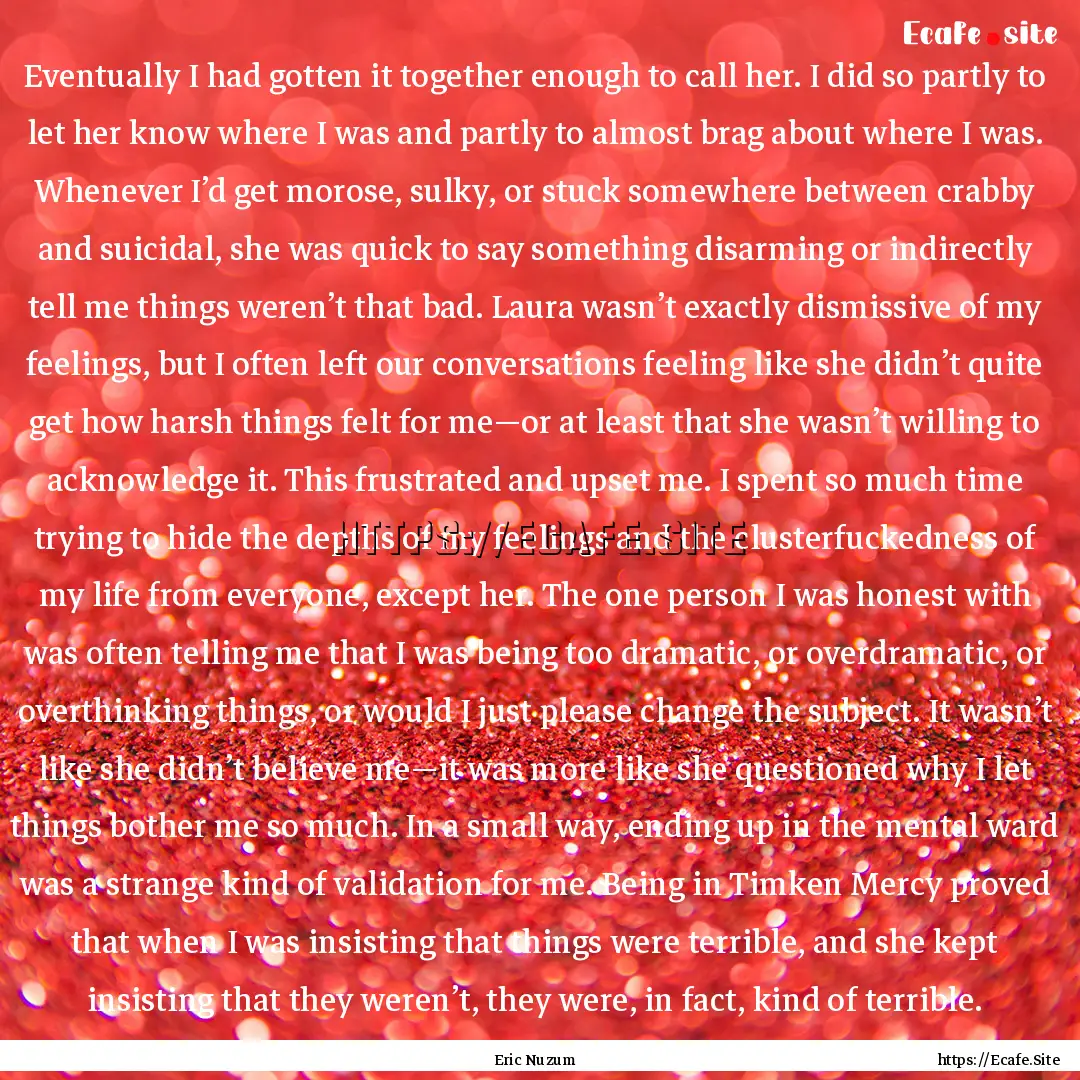
Report, if you have a problem with this page“ Eventually I had gotten it together enough to call her. I did so partly to let her know where I was and partly to almost brag about where I was. Whenever I’d get morose, sulky, or stuck somewhere between crabby and suicidal, she was quick to say something disarming or indirectly tell me things weren’t that bad. Laura wasn’t exactly dismissive of my feelings, but I often left our conversations feeling like she didn’t quite get how harsh things felt for me—or at least that she wasn’t willing to acknowledge it. This frustrated and upset me. I spent so much time trying to hide the depths of my feelings and the clusterfuckedness of my life from everyone, except her. The one person I was honest with was often telling me that I was being too dramatic, or overdramatic, or overthinking things, or would I just please change the subject. It wasn’t like she didn’t believe me—it was more like she questioned why I let things bother me so much. In a small way, ending up in the mental ward was a strange kind of validation for me. Being in Timken Mercy proved that when I was insisting that things were terrible, and she kept insisting that they weren’t, they were, in fact, kind of terrible. ”

Eric Nuzum
From : Giving Up the Ghost: A Story About Friendship



